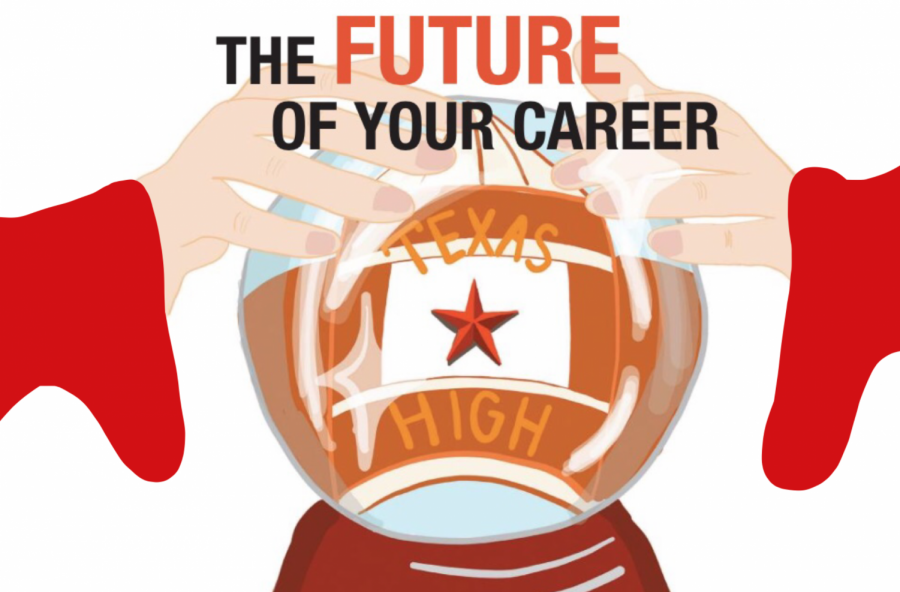The future of your career
Is career planning useless in high school?
Photo by Victoria Van
Students are expected to live up to high standards academically but suffer when it comes to being prepared in the real world— the future of one’s career.
October 16, 2018
High school is the intersection of a large number of social constructs: cooperative socialization, child development and professional development, among others. Society has come to a consensus that education is the road out of poverty, the road to higher ground. This road, however, does not come without its fair share of bumps and detours.
Many issues plague high schools today, such as a failure to pay its teachers, a failure to prioritize student safety, and a misguided approach to planning student careers and futures. It seems impossible to underplay the importance of education. Our world’s rapidly evolving culture and accompanying economy, as well as politics and society, highlight the need for a smarter, more qualified workforce. For these reasons, an examination of our conditioning and preparation for the workforce is an important step in realizing our potential.
We are expected to know what we want to be as children, as middle schoolers and as high school students. Despite this ongoing discussion of our careers and futures, a study by the Federal Reserve Bank of New York shows that only a quarter of college graduates work in a field related to their major and only a little more than half work in a field related to their degree. We are expected in high school to follow our paths religiously, but students need exposure to new and diverse working climates. Most careers planned during high school are likely to be overturned in the coming years.
In 2013, House Bill 5 changed the graduation requirements for high school students in Texas, obligating them to adopt an endorsement in the ninth grade, which are 26 credit plans in five different areas: multidisciplinary studies, STEM, arts and humanities, public service and business and industry. However, only public universities —which operate under the legislature of House Bill 5 — must legitimately consider endorsements for the college admissions process. Private institutions will not consider them beyond the extent they play in, what the Tenney School, a prestigious private school based out of Houston, calls the Big 3: class rank, test rank and course rigor.
The problem with endorsements falls mainly onto the academic advisers, who have to prioritize graduation requirements over other elective classes a student might opt to take. Through these prerequisites, students can be shortchanged of a certification, license or associate’s degree. Most students will end up debating their previous planning and go on to change their schedule. Instead, they will find themselves at a loss.
For instance, a core class might fall on the same class period as another class you want to take for career experience. Depending on how specialized these kinds of classes are, that might be the only time in the block schedule that class is offered. Instead of taking this career-specific course, you would have to take that core class because of the graduation requirements.
We are expected to know what we want to be too early. Even in middle school, administrators and academic advisers come over annually to help students hash out what they want to work on during high school, maybe even their college or professional careers. Entrusting them to plan their careers at that time seems like a misstep in an inefficient direction.
Almost half of students who enroll in college end up dropping out. In that way, we are expected to fail on our own. What are we supposed to make of all these expectations? The uncertainty is enough to challenge the idea that the careers hashed out during high school translate into skills or knowledge that we can take to college, or to vocational school or to the workforce.















